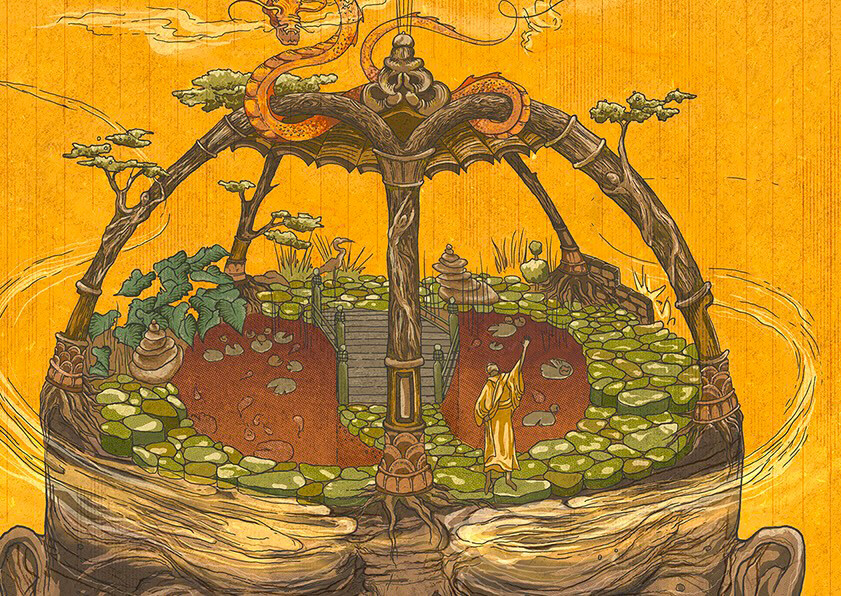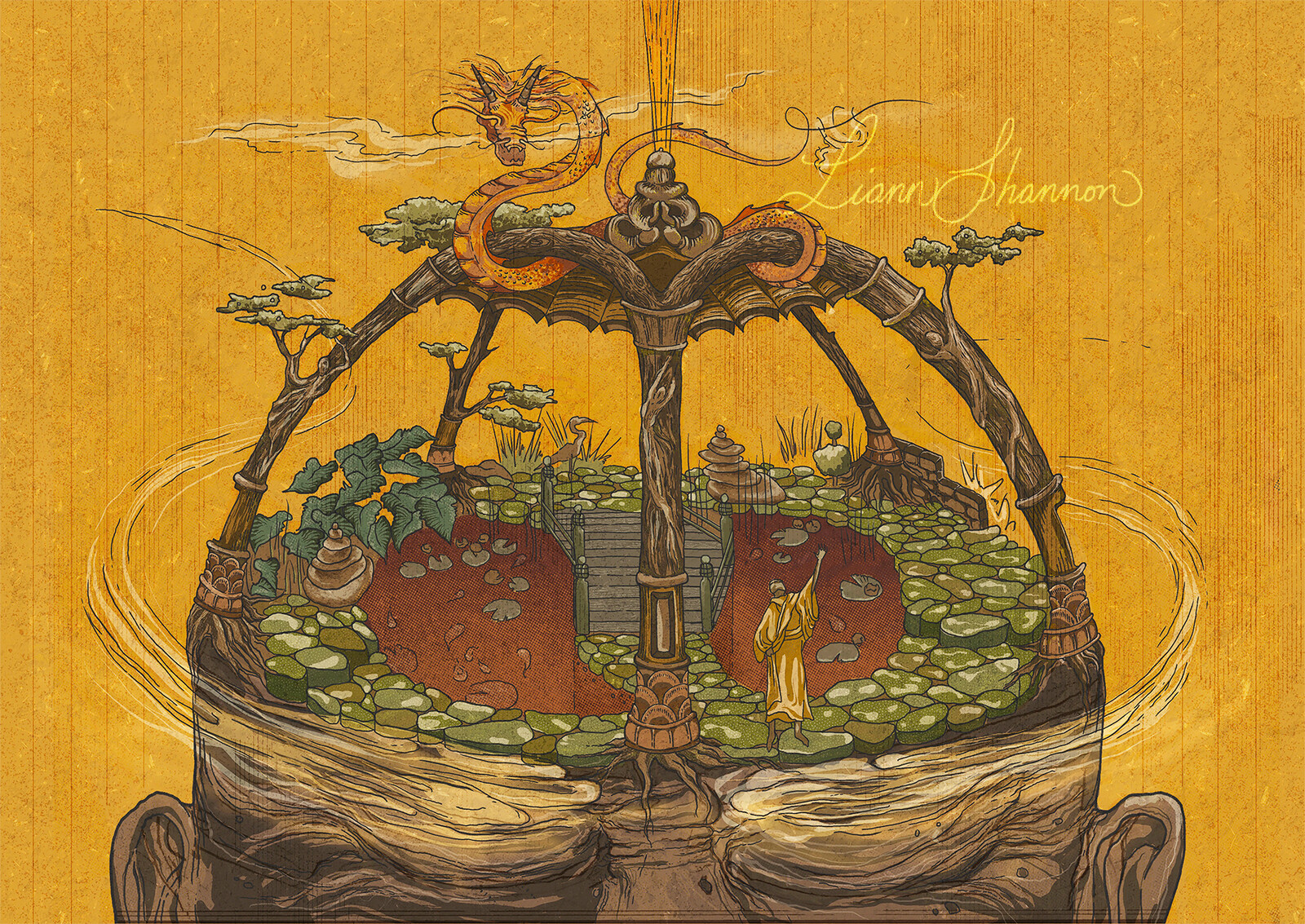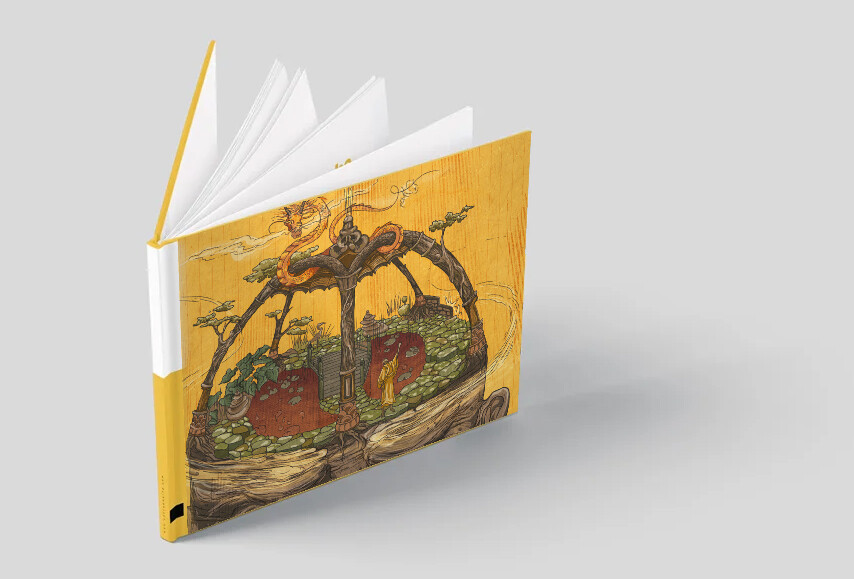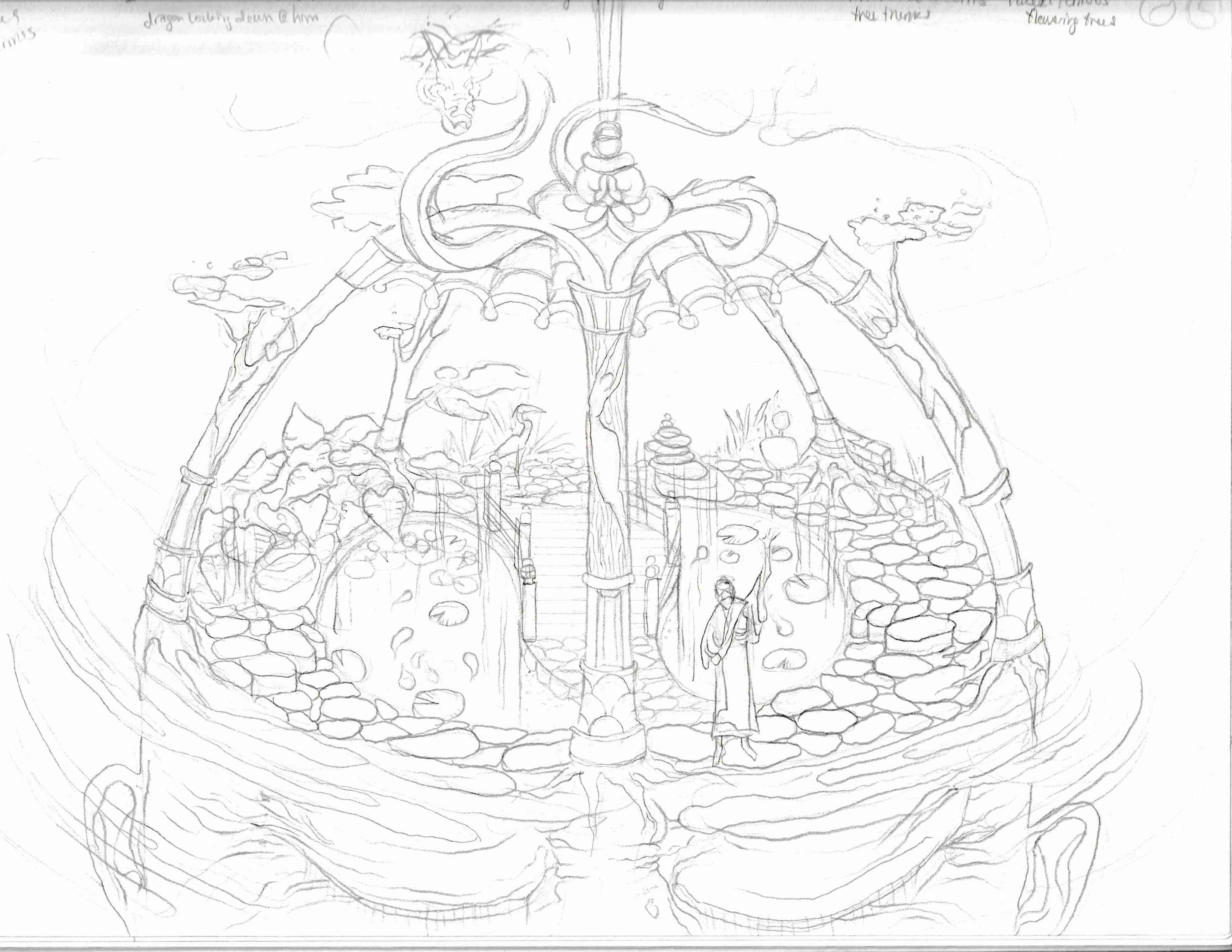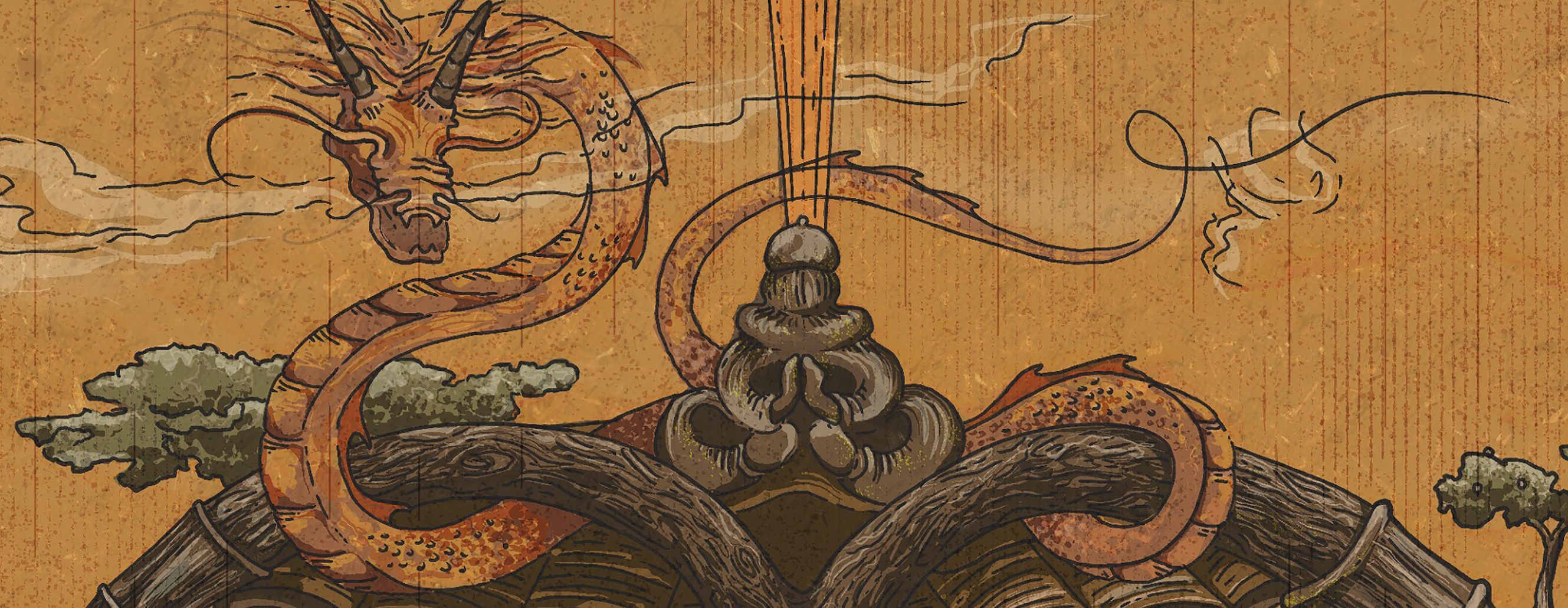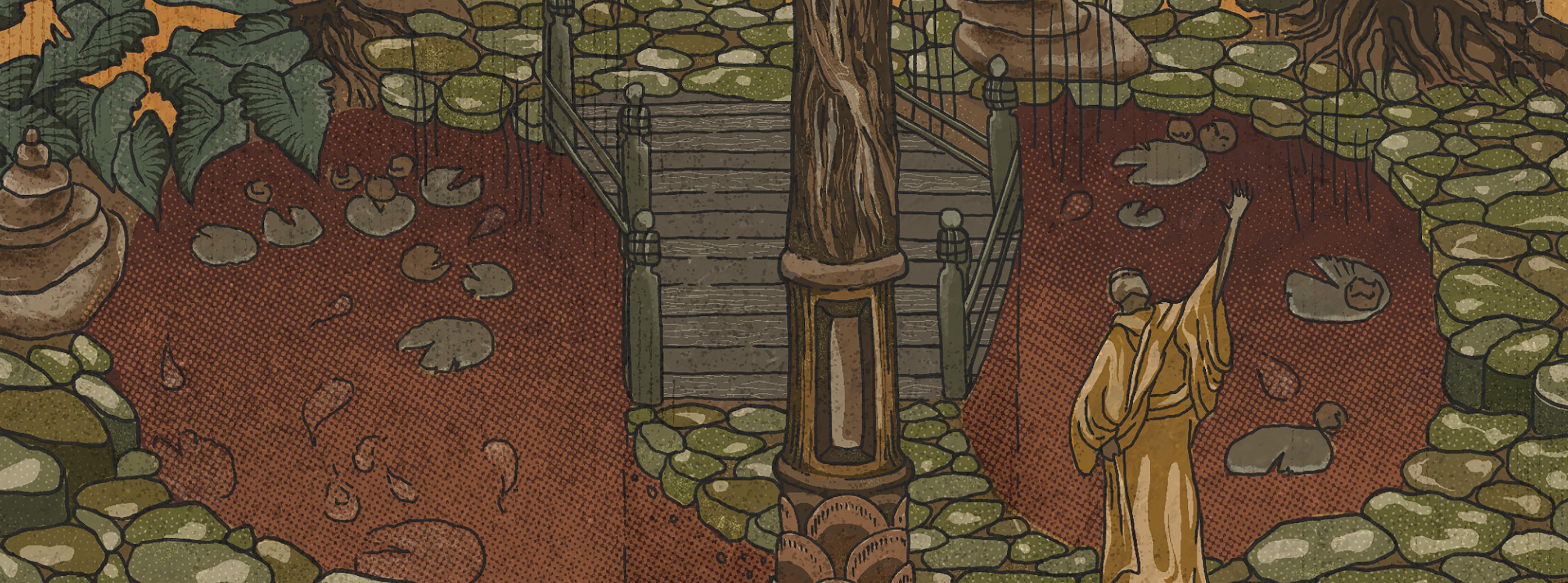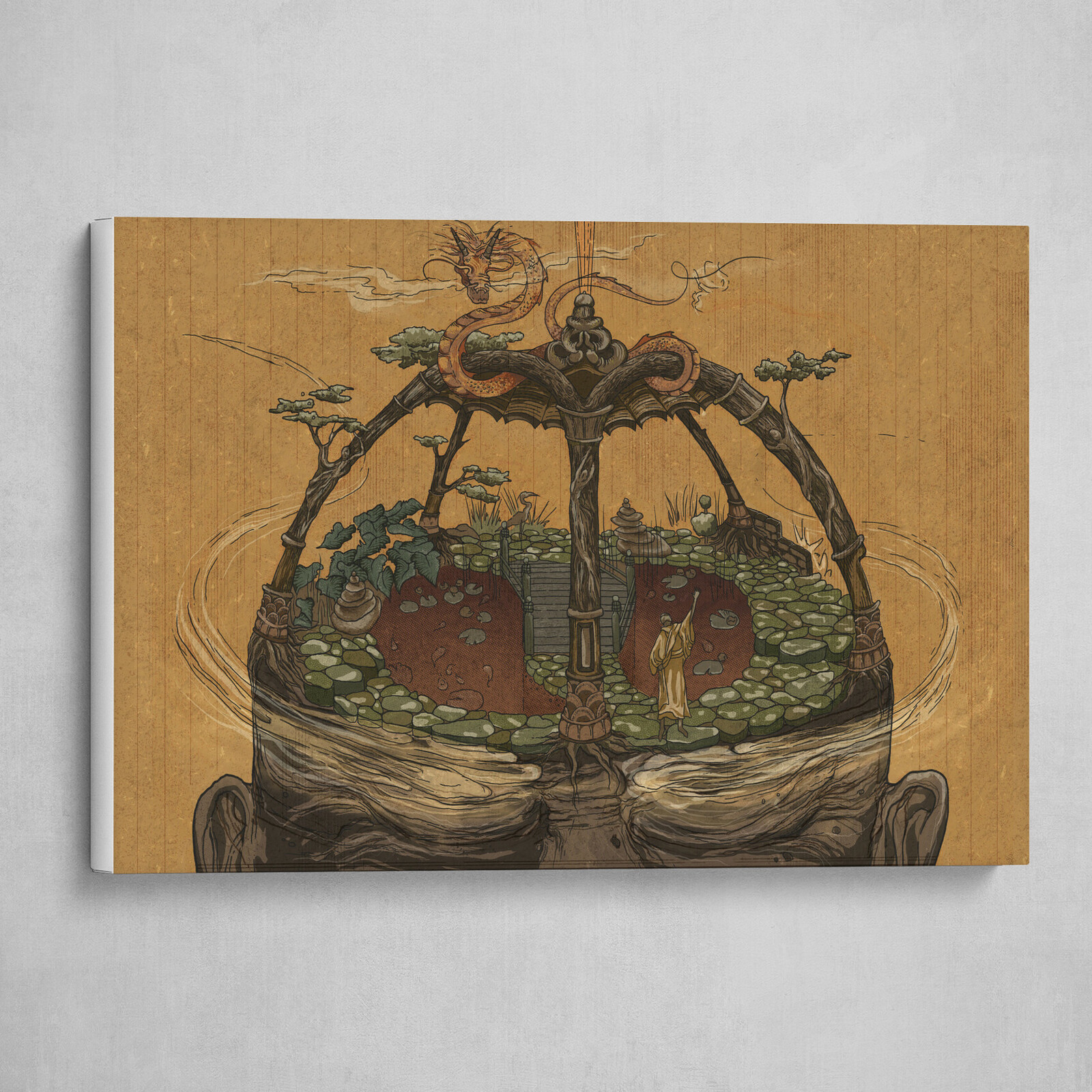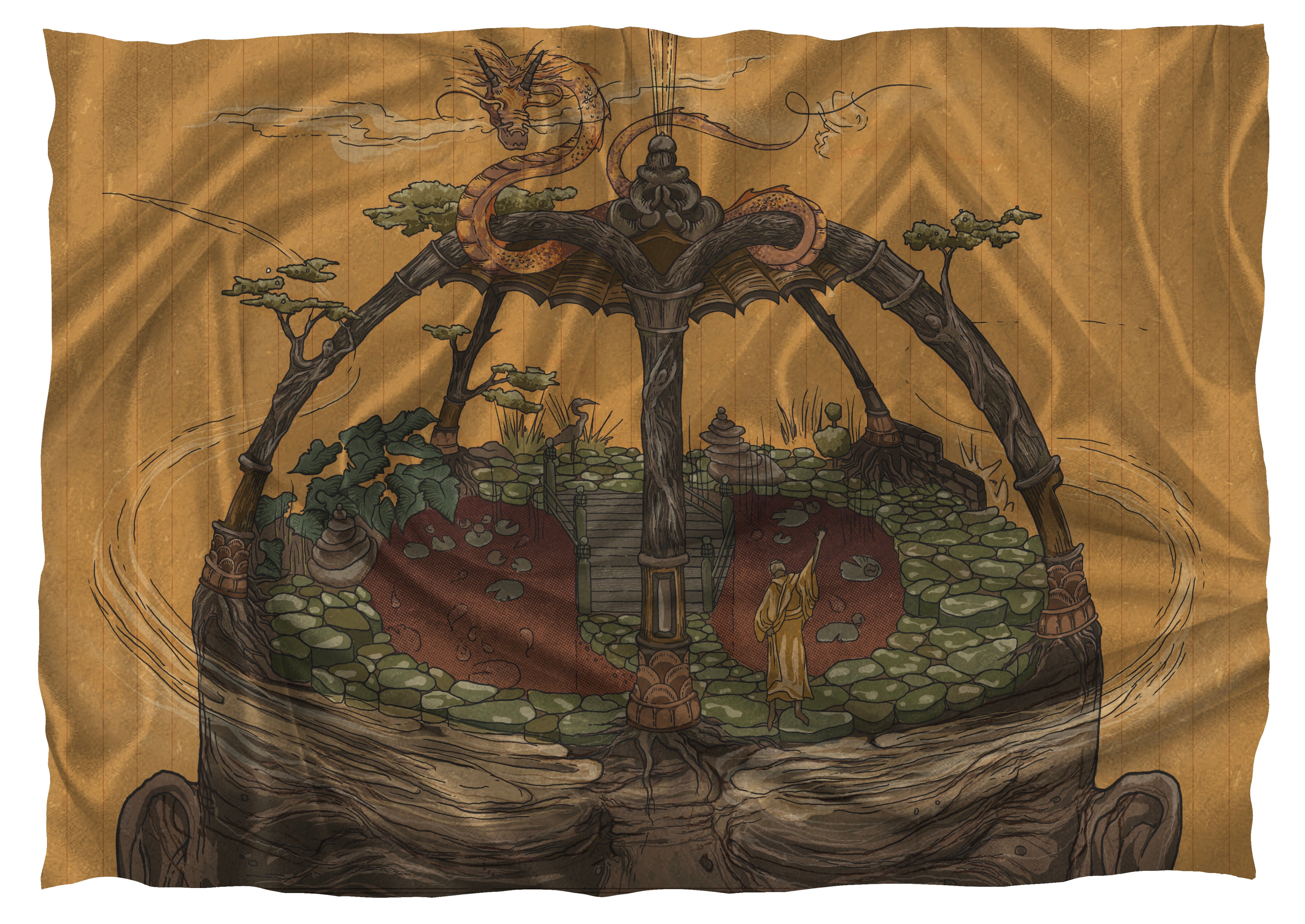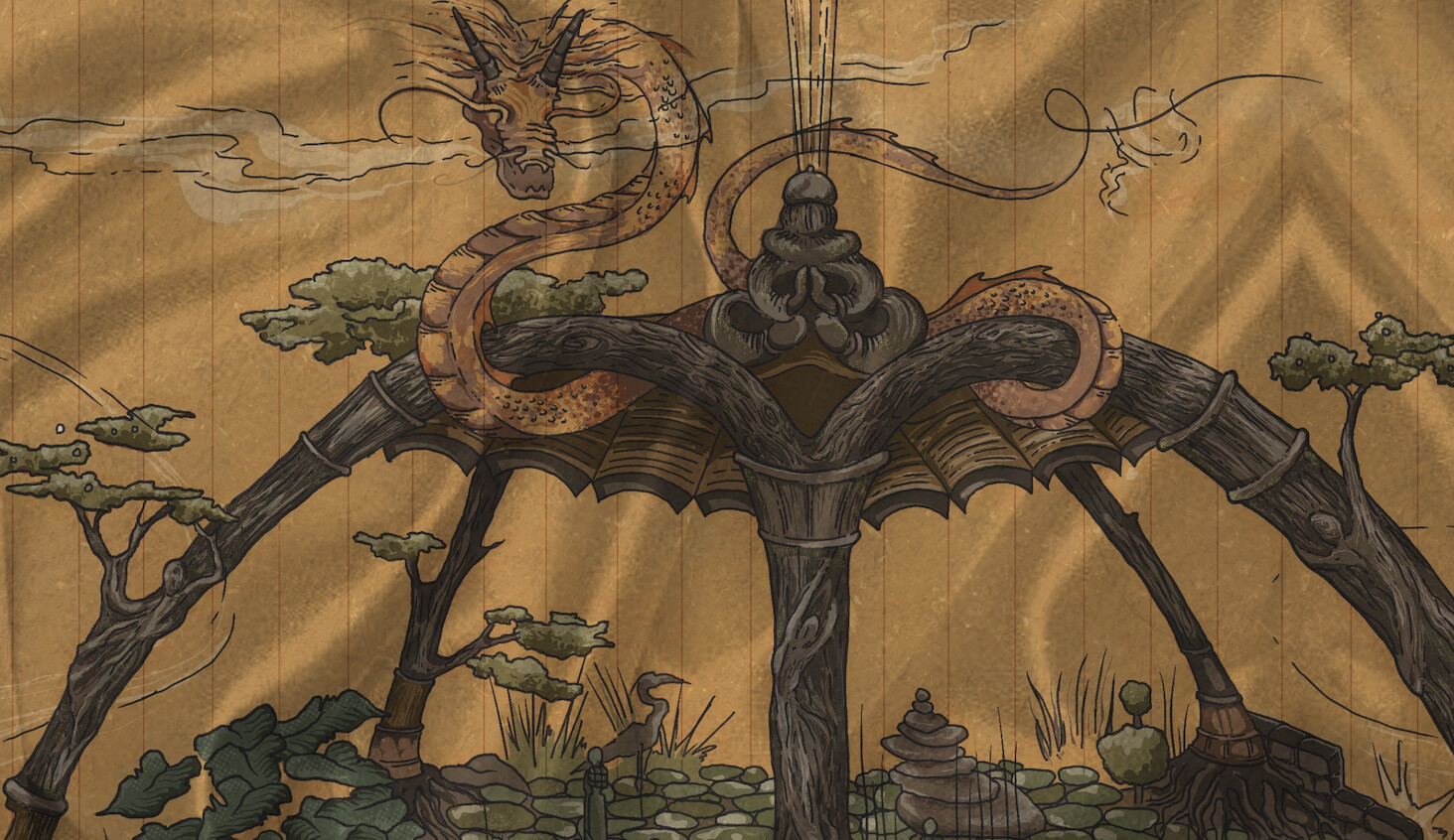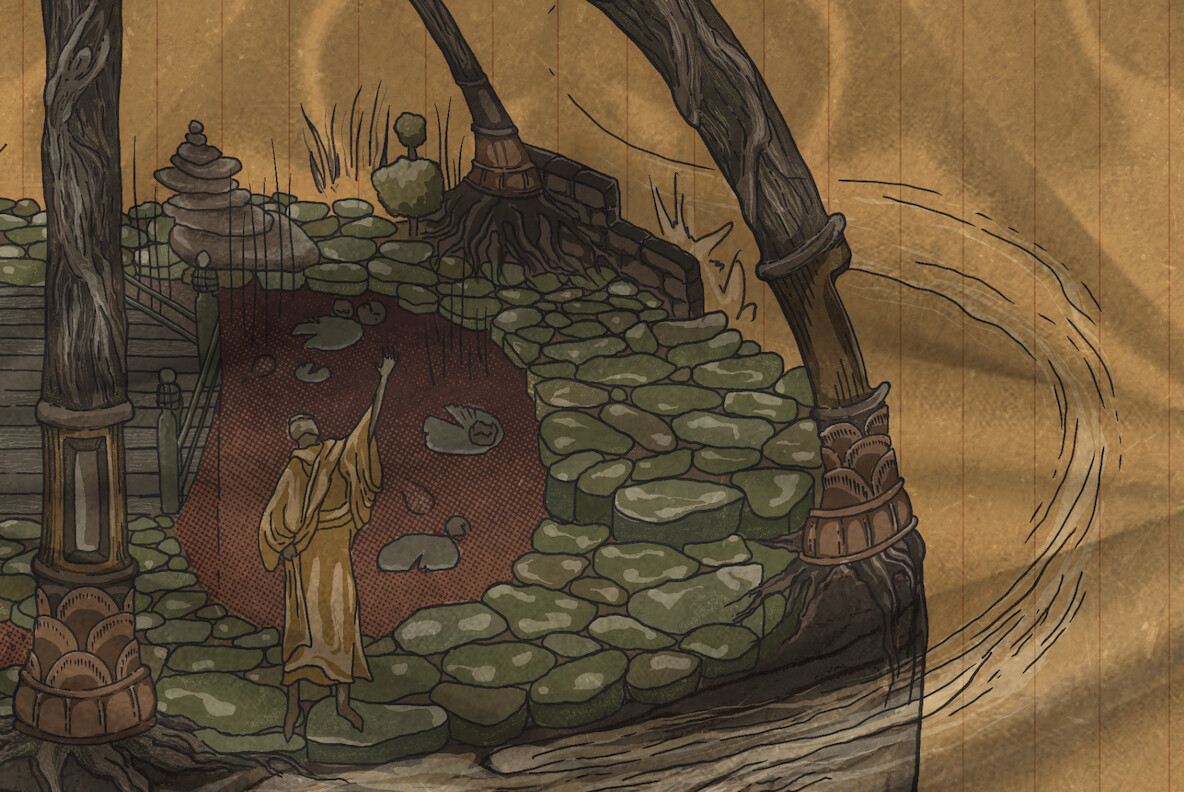I Think For the Last Time
Timelapse Video
Animist Fable
He'd learned the names and ways of all the lilies and ferns but the Gardener wondered why he was still lonely. He’d taught the trees how to find water, the ferns how to store it, and the lilies how to clean it. Because of this, there were fish for the birds, and birds for the dragons who brought rain, sun, and night. But there was no one to see or remember these ten thousand years moving in circles at one perfect pace everyone could keep. The gardener had balance, time, and space, but he had no one to share it with, nor anyone to give it to.
Perhaps if he thought hard enough, he could change this. He looked at the paths he’d paved, the stones he’d stacked, and the bonsai dancers he’d crafted over the centuries, and decided what his garden needed was a fountain. Not a fountain just to be seen and heard, but lived in. He would feed it on one side with all he knew and loved of the past, and on the other, all he saw and hoped for in the future.
The pools began to fill with his mind. He felt a million souls awakening, tiny, quiet, and amazed on their continents on either side. To help them navigate the infinity of these waters, he imbued the people with his years of observation, ingenuity, and play. To give them layers through which to experience the garden, he gifted them with the powers of sight, hearing, touch, smell, and taste.
One million pairs of eyes opened. The people pointed to the skies and water, at the way the light changed, and then at themselves with questions in their eyes. They knew how to build and learn with their hands and minds, but Why? they asked. Why, to share time of course, the black pines remarked. Indeed there was time everywhere they looked, but the people insisted on looking further. Why? they asked, their voices louder. To share in the balance, the heron offered. The balance she spoke of was evident all around them; wherever taking went, giving walked hand in hand. But the heron’s world was simple, the people said, and they continued looking for a greater authority. Why? the people asked, more loudly still. To share in the space, the dragon explained to them from his place in the sky. But even the dragon, who had brought them rain, sun, and night, was brushed aside and the people continued turning over stones and walls for answers.
(contact for full parable)
--
In the philosophy known as Yiguan Dao, “The Way of Unity” (一貫道), the Infinite Mother gives birth to yin and yang as two children, Nüwa and Fuxi. Fuxi (伏羲), the son, is credited with the invention of hunting, fishing, domestication of animals, cooking, the writing system, and the Bagua (八卦) fundamentals of reality, “The Eight Trigrams.” Nüwa (女媧) is remembered for inventing musical instruments and repairing a pillar of the heavens. The dragon, which makes frequent symbolic appearances in Yiguan Dao, is regarded as the essence of water, rain, and floods. When humans were first sent forth, they lost any memory of the Infinite Mother who worries still for her lost sons and daughters who forgot their true nature. She is foretold to gather them all back to the original state as one family.
Daoism (道教), founded on “nature’s way,” emphasizes a perfection achieved by yielding to the alternating rhythms of the natural world in its nonaction precept “wuwei” (無爲) and suggests that human behavior be shaped around those rhythms, not the other way around.
Confucianism (儒家思想) emphasizes the ordinary details of our lives as manifestations of the sacred and the concept of change as a dynamic relationship between yin and yang. The first book of Confucius’ five classics, the I Ching, “Classic of Change” (易經), discusses these most in depth, contrasting yin and yang as the receptive and proactive, the formless and the formed, shadow and sunlight, female and male, and chaos and order. By listening to the rhythms through which the natural world communicates, human beings have their answer on how to live and act.
The Gardener in this illustrated parable forms two pools of humanity from his consciousness; Runea, a past-oriented society that finds purpose through spiritual tradition, and Tek, a future-oriented society that finds purpose through industry and thought.
COLLABORATION
Handpan Musician: Chris Ng
Handpan Maker: Echo Sound Sculpture
